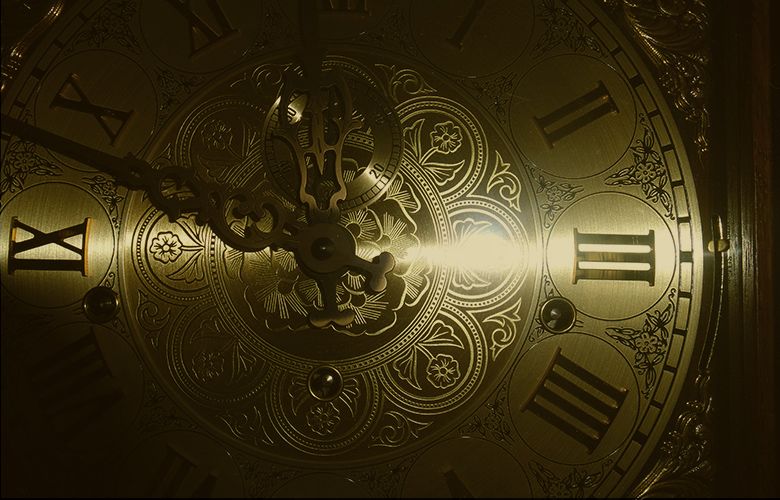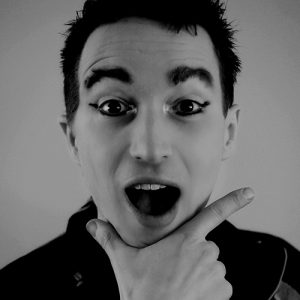
“How long can I do this?” and “Why am I doing this?” are very important questions that every artist should be asking themselves. Nothing is more ephemeral than a live performance, no curtain will fall twice on the same show, if only because of the cast who, in spite of being the same as the previous night, will be in a different state of body and mind, just like their audience.
However, regardless of how different or similar a production might feel each night, at some point “It’s time to get out of the golden handcuffs,” to quote Jonas Woolverton who, after 10 years of spinning and sweating on the Zumanity’s stage in Las Vegas, 5 nights a week, twice a night, is about to leave the Cirque du Soleil show that has been the center of his life for the last decade.
This circus artist strongly believes that passion must always be present when the lights come on, that artists have to stay connected to the material and the audience to keep the show alive and at its very best.
“An inspired and motivated artist is always more enjoyable to watch than one who delivers a flawless performance, but who has lost all dramatic intention.”
How does one keep that intention alive, how can a show feel fresh and stimulating in the long run and how does a cast avoid falling into a routine both on and off stage? After meeting with Jonas, it appears that the answers can be found down memory lane and on the New York New York theatre’s stage!
Early on, the interest in circus and passion for performance manifested themselves and kept growing for this art-driven man: from the family outings to Barnum & Bailey’s and the Big Apple Circus in his native New York city to his rock band gigs with the Bindlestiff Family Circus, until ultimately attending San Francisco’s Circus Center and Clown Conservatory. Taking center stage as a clown was the initial plan, but, if each artist feels called to a certain discipline, in Jonas’ case, the Cyr Wheel turned out to be the best scene partner and way to express himself. “Especially considering that we were only a handful to practice this discipline in the early 2000’s, which meant that there were no standards, that everything was possible and had to be created. Plus, there is that strong, addictive feeling of freedom that one finds in all that spinning!”
Before joining Zumanity’s seductive society, Jonas spent years perfecting his skills on tour, where he learned the importance of being a strong actor, one that flips and spins, but an actor never the less, and of being able to deliver a strong performance each night, to keep it fresh and challenging by making little changes, while aiming for perfection, show after show. Being able to rely on an united cast, to stay connected as a group and accepting that the stage won’t always be perfect, whether it’s because of water dripping from the ceiling or of a nail coming out of the floor, but that you can still make it perfect for that particular audience are other valuable tour lessons that made his lengthy Vegas run both possible and enjoyable. “Of course tricks have to be solid, they can save you, but you must live and enjoy the moment too!”
Zumanity had already been entertaining and enticing audiences for a few years when Jonas was invited to join its cast, but apart from the show’s first 15 minutes that he quickly caught between two representations of Rain, his previous engagement, he had never seen this erotic circus cabaret nor knew what being on a permanent show would be like. It didn’t take him long to realize how comfortable this life can be in comparison to freelancing: always knowing when the next show is, where and when to be, having costumes, props and pretty much everything in between taken care of for you or being able to invest in people, places and projects outside of the show, to name a few. “You’re still sacrificing a lot for the gig as you are expected to deliver 470 performances per year, which is physically demanding and time-consuming, regardless of how much I love circus! However, Zumanity being a cabaret that mainly consists of solos and duos that often need to be either replaced or revamped to deal with injuries and to keep the show as relevant as when it opened 15 years ago, the direction is really open to ideas.
This has to be Cirque du Soleil’s freest show, changes and propositions to make it evolve are always welcome.”
Jonas admits that he would never have been able to stay with the production that long if performing his Cyr Wheel act would have been his one and only role, but the show’s open and creative identity, in which he recognizes himself, as well as outside creation projects made longevity a pleasant reality rather than a dreaded artistic rut. There is no doubt in his mind that those creation and learning opportunities, far from the Strip, have been key elements of his lasting passion and success. Whether it’s the possibility to act in a play, to choreograph, or to play music in an intimate venue, all those artistic endeavours can inform one’s everyday gig, help them to approach and to appreciate their main stage on another, deeper level.
In Jonas’ case for instance, Zumanity being a show that requires to leave all inhibitions off stage and to be fearless, studying acting and taking the lead in a Pulitzer-nominated play made perfect sense as he realized that he could really connect with the audience, that delivering a monologue or addressing them as a cabaret character wasn’t very different. This experience gave him the confidence boost and additional fearlessness to audition for and land one of the show’s lead characters, MC. “Doing drag was brand new for me and I also got to create plenty of new material in those heels and eyelashes, an exceptional opportunity for an artist who has been on the same stage for many years. This process showed me how crucial it is for artists to pursue their passions.”
“Acting, knitting, blogging, video editing, do whatever it takes to stay involved and to pursue your passion!”
With only a few weeks to go before the lights go off on Casanova, the character that he created and performed as in over 4000 shows, Jonas hopes to go out with a bang by enjoying his last steps and spins as truthfully as possible and by giving all his energy and passion to the audience who has been the show’s driving force and the reason why performing in it never felt repetitive. “Audience members are actively involved in several scenes, so a lot of the fun comes from them and it’s always a pleasant surprise to see what crazy impulses they will have with us. It’s so funny and raw!”
His deep love for the audience, the obvious final ingredient to his lasting career on stage, can always be heard in his voice, especially as he’s offering stage artists out there one final piece of advice: “Acting is about relationships, you can create and nurture them by really listening to your audience and scene partners, allowing them to touch you emotionally, to affect your performance and, if they no longer can, be smart, recognize the sign of a potential burn out before the audience does as no show should suffer if the motivation and desire to go on stage are gone.”


Impassioned by performing arts, Martin Frenette started intensive dance training at a very young age before trading pliés and barres for ropes and somersaults at Montreal's National Circus School. He has spent a decade in Europe, performing in various productions. Circus Monti, Chamäleon Theater, Wintergarten Varieté, Cirque Bouffon, GOP Show Concepts, and the Friedrichsbau Varieté have allowed him to grow artistically and humanly. Martin has also invested time working as an artistic consultant, director, and choreographer for both circus and dance projects. He enjoys splitting his time between Europe, Canada, and the US, working on stage and creating for others. Writing has always been a big passion of his and he's thrilled to share his views on shows, the stage, and what's going on behind the scenes with other performing arts enthusiasts!
Read Full Profile© 2021 TheatreArtLife. All rights reserved.

Thank you so much for reading, but you have now reached your free article limit for this month.
Our contributors are currently writing more articles for you to enjoy.
To keep reading, all you have to do is become a subscriber and then you can read unlimited articles anytime.
Your investment will help us continue to ignite connections across the globe in live entertainment and build this community for industry professionals.